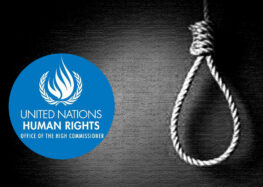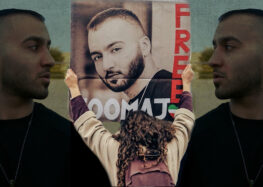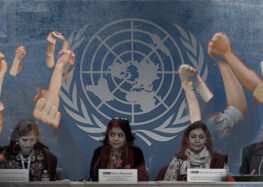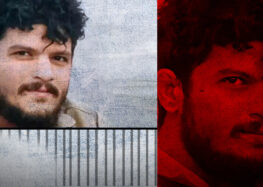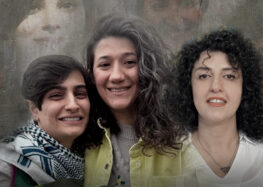Iran’s Intelligence Establishment is Spreading Propaganda Through Films and TV
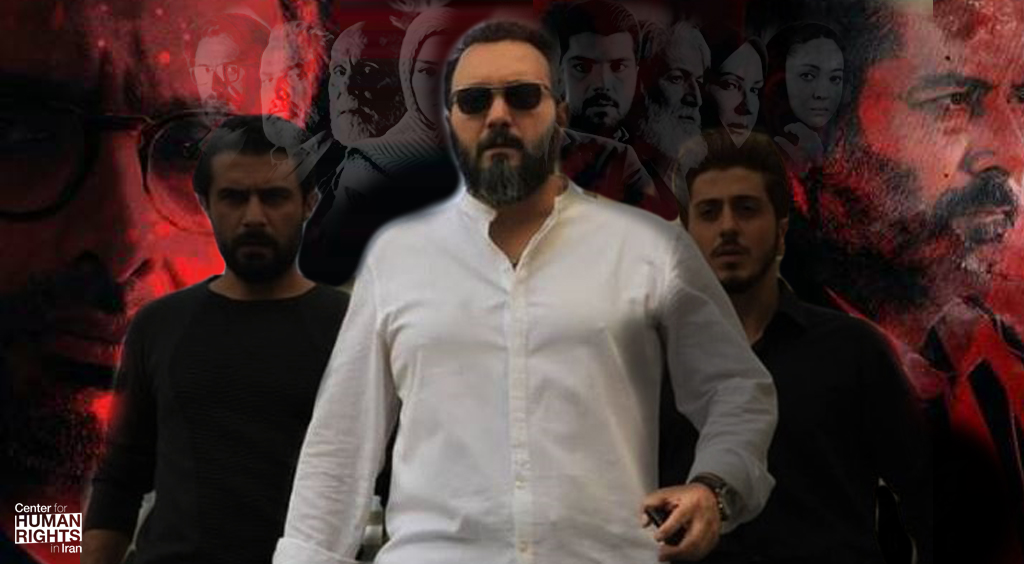 Intelligence agencies in Iran are increasingly using state-funded entertainment productions to spread state propaganda and improve their image among the public, according to research by the Center for Human Rights in Iran (CHRI).
Intelligence agencies in Iran are increasingly using state-funded entertainment productions to spread state propaganda and improve their image among the public, according to research by the Center for Human Rights in Iran (CHRI).
Iranian Intelligence Minister Mahmoud Alavi boasted about the substantial role of the state’s security establishment in the production of local films and television shows during an interview with the reformist Shargh newspaper on February 15, 2021.
The goal is to use entertainment mediums as a vehicle to “educate the public” and “protect society against espionage,” said Alavi.
In reality, the productions serve as vehicles for state propaganda, portraying the government as a benevolent actor even as it suffocates civil society actors through arbitrary arrests and kangaroo trials to repress dissent and criticism of state policies.
During his interview, Alavi proudly admitted that the drama series “Khaneye Amn” (“Safe House”)–a thriller in which intelligence agents hunt spies and traitors–was produced by the Intelligence Ministry.
It aired through 50 episodes on Channel 1 of the state-owned Islamic Republic of Iran Broadcasting (IRIB) organization in the fall of 2020.
IRIB has repeatedly colluded with Iran’s judiciary and security forces, including the Islamic Revolutionary Guard Corps (IRGC), to smear defendants in politically motivated cases.
It also broadcasts forced confessions by detainees, in clear violation of international provisions on fair trials and the right to due process.
One “Safe House” episode that aired in 2020 targeted German-Iranian dual national prisoner Jamshid Sharmahd.
In the episode, an agent asks an informant about Sharmahd’s identity after being shown a real photo of him.
“He leads the [outlawed] Iranian monarchist association,” the informant says. “He engages in a lot of secret activities and works with both the Israeli and American intelligence services.”
Sharmahd is facing those accusations in reality, though no date has been set for his trial.
Like other dual nationals detained in Iran, he has been denied access to counsel and only allowed severely restricted contact with his family.
Yet the state-funded series presents him as a dangerous spy while denying him a chance to defend himself and while blatantly violating his right to privacy.
According to Article 96 of Iran’s Code of Criminal Procedure, “During preliminary investigations, the publication of images or other details by the media or judicial and law enforcement authorities regarding the suspect’s identity is prohibited.”
Article 96 only allows for the photos to be published in cases involving suspects who are on the run and may be found if recognized by members of the public–not relevant in Sharmahd’s case.
Intelligence Agencies Glorified While Dissent and Independence Portrayed as National Security Threat
In the early 90s, Iran’s intelligence agencies only played minor roles in the production of state-funded films and TV series that proved unpopular among the general public.
Yet in recent years, large investments by the Intelligence Ministry and the Islamic Revolutionary Guard Corps’ (IRGC) Intelligence Organization have turned them into major producers of entertaining shows that depict the security forces as patriotic super sleuths.
A consistent theme in these shows is the portrayal–from the state’s perspective–of real cases involving detainees facing politically motivated charges.
One example is “Gando,” a series that aired on IRIB’s Channel 3.
The first season was centered around the main character “Michael,” a fictional representation of Jason Rezaian, The Washington Post’s Iranian-American correspondent based in Tehran who was arrested by IRGC intelligence agents in July 2014 on espionage charges and freed in January 2016 in a prisoner swap deal.
Gando’s screenplay writer Arash Ghaderi said in July 2019 that “everything that happened in the Rezaian case was portrayed in fine detail.”
In reality, the series painted Rezaian as an American espionage agent with the trumped-up accusations that he faced as the only evidence of his guilt.
To date, Iranian officials have not revealed any evidence that proved Rezaian was a spy, a claim that got him two years in the country’s notorious Evin Prison after a kangaroo trial.
Rezaian was ultimately freed by being traded for Iranian prisoners in the U.S.–further testament to the lack of legal justification for his imprisonment, which many human rights organizations called hostage-taking.
Smearing Real-Life Detainees
In the opening of the second season, “Gando” aired scenes that are recreations of IRIB footage showing the arrest of dissident journalist Rouhollah Zam in October 2019.
After a trial sorely lacking in international standards of due process, Zam was executed in December 2020.
In one episode, the young IRGC intelligence agents–portrayed in the show as the “good guys”–abduct Zam from another country and bring him to Iran. (These were the same characters who arrested a fictionalized Rezaian in the previous season.)
Although Zam is not mentioned by name, the scenes and storyline leave no doubt over his identity.
The Islamic Republic of Iran could have taken a lawful route by seeking Zam’s extradition when he was living in exile in France. Iranian authorities could have presented evidence to the French judicial system to try to prove Zam’s guilt.
Instead, they resorted to kidnapping him across international borders and glorified the act in a television drama–shortly before he was executed. Though this was not how his case was portrayed in the show.
Demonizing Civil Society and Spreading Disinformation
The highly-popular “Agha’zadeh” (“child of a very important person”) series, produced by the IRGC’s Mowj Arts and Media Organization, is another clear example of the intelligence establishment’s attempt to falsify the true nature of Iran’s judicial system.
In reality, the Islamic Judiciary in Iran heavily favors state dictates over how Iranians should live their lives over internationally accepted standards of due process. Those who are accused of challenging this are treated as guilty with little means of proving their innocence.
The series accordingly attacks the integrity of the legal profession, which is effectively being disbanded in Iran to eliminate legal challenges to state practices and policies.
The attacks by Hamed Angha, the head writer of “Agha’zadeh,” on the legal profession and undermining the independence of the Iranian Bar Association are not new.
In 2015, Angha’s negative depictions in the dramatic series “Tanhaiye Leila” (“Leila’s Solitude”) prompted a group of lawyers to write a letter to the IRIB strongly voicing their objections.
As the most-watched TV series in Iran, Agha’zadeh also uses sensationalist and sexually-charged plots to attract audiences while the story whitewashes the mistreatment of dissidents.
In one episode, scriptwriters skirted a cultural taboo by incorporating a very young female character who–shockingly for Iranian viewers–proposes to engage in sigheh or “temporary marriage” for an hour with a man who loves her.
This would be the first time such an event occurs in Iran’s severely censored film industry, in which any physical affection between men and women is severely restricted and women cannot appear without their heads and bodies heavily clothed.
The “sexy” storyline did the trick. Clips of the series were widely shared and debated on social media, substantially increasing the series’ popularity.
Meanwhile there was little discussion over the falsehoods depicted over the state’s violations of human and civil rights and discriminatory attitudes.
This series in particular also repeatedly misrepresents the experiences of peaceful political activists and various dissidents once they are slung into the judicial system.
For example, judicial authorities in the show struggle to convince judges to summon suspects while in reality, intelligence agents heavily influence the legal process.
The series also perpetuates falsehoods about women in its portrayal of the case of Tehran’s former Mayor Mohammad Ali Najafi, who confessed to killing his wife in May 2019.
Notable about this storyline was its presentation of the role of attractive women, derogatorily referred to in Iran as “Parastoo” (the swallow bird), in entrapping men.
Women in Iran are among the Middle East’s most educated but continue to face severe rights violations and discrimination in both law and practice.
The growing influence of Iran’s intelligence agencies in the local entertainment industry is heavily geared towards one goal: to legitimize and justify the actions of state institutions and forces against non-violent dissidents under a banner of patriotism.
These dramatizations portray the country’s laws and legal system as fair. The well-financed productions and their increasingly interesting storylines may indeed be having an impact on public opinion.
Yet in reality, Iranians are blocked from accessing international television and films as well as various popular international social media platforms to prevent freedom of thought. How effective this state strategy will be in the long run–as it becomes more and more difficult for states to block and control access to information through the internet–remains to be seen.
Read this article in Persian.

